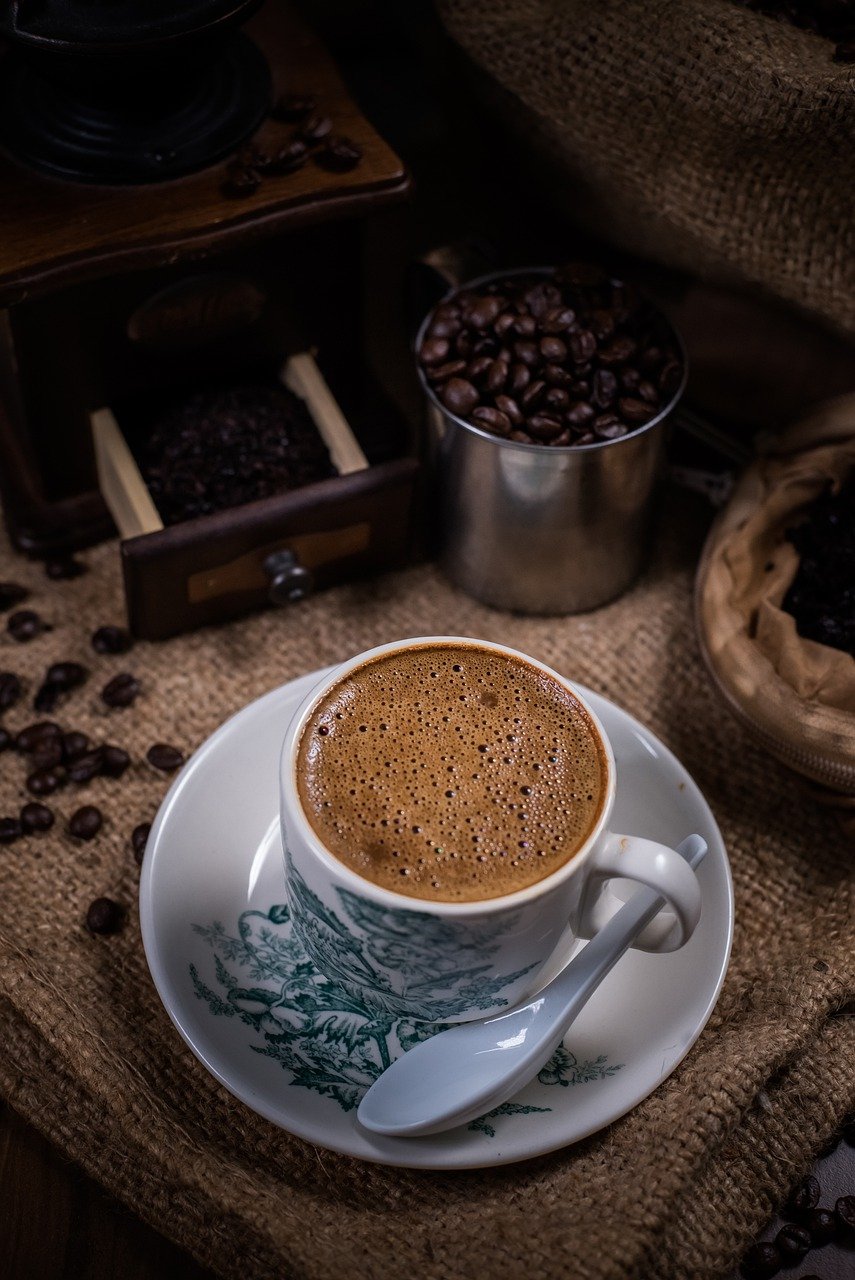Caffeine rush- Imagine you have an exam coming up the next day and you will have to stay up long to finish your revisions. The first thing that comes to your mind is a piping hot cup of coffee. How does coffee keep us awake? How long can it keep us awake? To find answers to all these questions, dive deep into the world of coffee.
Caffeine: the key component of coffee
To all the coffee (and tea) drinkers out there, I am sure you are aware coffee has ample amounts of caffeine and that is what keeps you awake and alert. As you will see in the upcoming section of this article, caffeine structurally resembles adenosine, a purine nucleoside. With a chemical formula of C8H10N4O2, it has 8 carbons, 10 hydrogen atoms, 4 nitrogen, and 2 oxygens arranged as a purine ring.
Likewise, adenosine has a similar structure to that of a chemical formula of C10H13N5O4. It consists of adenine attached to a ribose via a β-N9-glycosidic bond.
How does caffeine work?
Caffeine blocks the adenosine receptors in your brain. In case you are wondering what they are. They are tiny receptors in your brain that promote sleep. It is often called the “calming hormone”. Caffeine resembles adenosine in its structure and hence blocks these receptors. So, if you block these receptors, you no longer fall asleep. It leaves us stimulated, more alert, and energetic. It also constricts the blood vessels. This is quite the opposite of what adenosine does, i.e. it makes you drowsier, dilates the blood vessels allowing more oxygen supply to the respective organ and eventually puts you to sleep!
The caffeine effect

Caffeine brings about an effect called neuron firing. This firing resembles an emergency and is sensed by your pituitary gland which will stimulate the production of adrenaline- the flight or fight hormone. Thanks to adrenaline, your blood vessels constrict, pupils dilate, and your heart rate increases eventually making you feel very energetic. Caffeine also stimulates the release of dopamine, the feel-good hormone that eventually is often associated with the brain’s reward system. This makes it all the more difficult for us to sleep.
Why say goodbye to caffeine eight hours before bed?
Caffeine, as you can see, makes you stay awake for a long time. Drinking coffee right before bedtime will keep you awake when you must sleep after a long day of work.
Do you know some can even sleep after having a cup of coffee?

In very rare cases, some blessed souls can also fall asleep after gulping down a full cup of coffee. They aren’t essentially blessed because what happens is that the caffeine results in sleep deprivation and this sleep loss can make you feel sleepy the next day. If you drink coffee to curb that sleepiness, the vicious cycle repeats. So basically, your body gets resistant to caffeine. This brings us to the next section- the negative effects of excess caffeine.
The downsides of too much caffeine
The first thing that caffeine has a direct impact on is your sleep. It disrupts your sleep cycle. It keeps you awake when all that you need to do is sleep. It will make you fall asleep late or the number of hours of deep sleep may reduce. It is important to have a decent deep sleep to feel refreshed the next day.
Excess caffeine can also cause headaches, jitteriness, and nervousness.
Caffeine still has some positives too.
In hindsight, caffeine is often suggested as a therapeutic for Parkinson’s disease. Caffeine improves mental performance and alertness, which is exactly what we need for treating the condition. At low levels, coffee may help alleviate symptoms of anxiety and depression. It can boost cognitive functions like memory and attention. However, it is no substitute for a calm restful sleep for at least 8 hours.
Other sources of caffeine
What comes to your mind first when I say Caffeine? Yes, it’s coffee. But there are a lot of other sources of caffeine out there that you might want to explore. They include tea and hot chocolate (or even chocolate). A piping hot and delicious cup of melted chocolate will make your mouth water.
Some non-caffeine ways to keep you active and energized!

Remember, caffeine is not the only way to keep yourself energized throughout the day.
The best (and the most practical) thing you can do is to get some sunlight in. Your body’s circadian rhythm responds to light. Turning on the lights in your room or even better heading out for a jog in the morning can be the best and most energetic way to start your day.
As simple as it sounds, the next best thing you can do is to sleep well. By regulating your sleep cycle, you will feel fresh and well-rested during the day. Sleeping and waking up at the same time is best for your body. So, compromising on your 1-hour extra sleep on the weekend will benefit you in the long run.
Exercise- while most of us prefer the evenings to hit the gym, it is always best to go for a jog or a run in the morning. This will help you wake up.
However, if you are too sleepy, consider a power nap, although it cannot replace a full-fledged 8-hour sleep.
So, you see
“A coffee a day may keep you active through the day, but too much coffee can make you jittery all day“
For all the coffee lovers out there, do not be disappointed. Caffeine isn’t that bad actually. But moderation is the key. A hot cup of black coffee can wake you up and keep you energized throughout the day. But, when it is time to wind down, it’s best to stay away from it.
Stay happy, Stay healthy!


Great read, thanks for sharing.